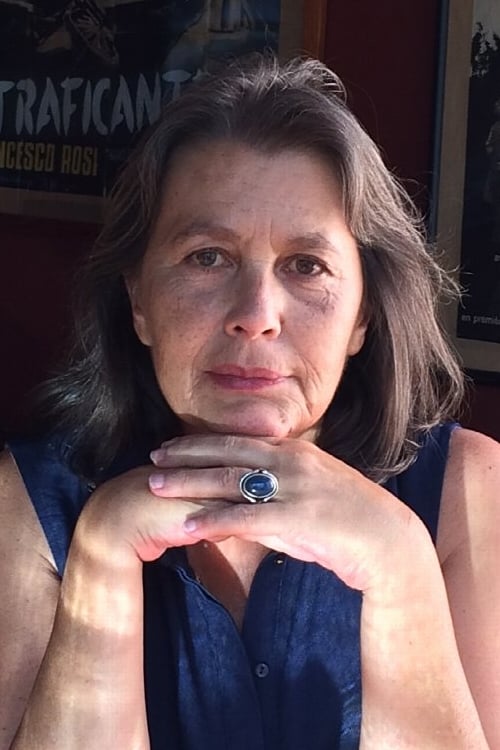
Rita Azevedo Gomes
Рождение : 1952-01-01, Lisbon, Portugal
История
Rita Azevedo Gomes (born c. 1952) is an award-winning Portuguese film director.
Her career dates from the early 70s and spans cinema, theatre and opera. In 2001 she presented her work in various film festivals including Venice, Montreal, and Turin. Altar (2002) won the prize for best director at the Angra do Heroísmo international film festival and premiered in Portugal in September 2002. This was followed in 2004 by A 15ª Pedra: Manoel de Oliveira e João Bénard da Costa em Conversa Filmada, which was shown at the Marseille, Procida and Doclisboa film festivals in 2005, as well in The Ancient Art Museum and Serralves Foundation. Also in 2005, she was commissioned by Faro Capital da Cultura to direct The Conquest of Faro, which was presented at the 2005 Turin Film Festival and had its national premiere in Faro in December 2005. A Colecção Invisível (The Invisible Collection, 2009) will have its premier in Lisbon at the Cinemateca Portuguesa. Her most recent film, A Portuguesa (The Portuguese), inspired in Robert Musil’s novel Die Portugiesin, is in post-production.

Rómulo's quiet routine in Rio de Janeiro changes overnight when an accident starts a wave of absurd events. Far from there, Orlando, his twin brother and rare works dealer tries to buy the book of a Brazilian student with financial problems. The twins' lives will be on a collision course with the arrival of a mysterious manuscript.

Editor
Paul and Adèle were once lovers and separated but are still good friends, one year after everything seems to take them away from each other. The key of E-flat may be the key of true friendship, but it is Mozart that pushes them apart...

Writer
Paul and Adèle were once lovers and separated but are still good friends, one year after everything seems to take them away from each other. The key of E-flat may be the key of true friendship, but it is Mozart that pushes them apart...

Director
Paul and Adèle were once lovers and separated but are still good friends, one year after everything seems to take them away from each other. The key of E-flat may be the key of true friendship, but it is Mozart that pushes them apart...

Director
Short film released through the Gestos & Fragmentos platform during the COVID-19 quarantine.

Director
Short film released through the Gestos & Fragmentos platform during the COVID-19 quarantine. With verses by Adília Lopes.

Director
Short film released through the Gestos & Fragmentos platform during the COVID-19 quarantine.

Director
Short film released through the Gestos & Fragmentos platform during the COVID-19 quarantine.

Director
Short film released through the Gestos & Fragmentos platform during the COVID-19 quarantine.
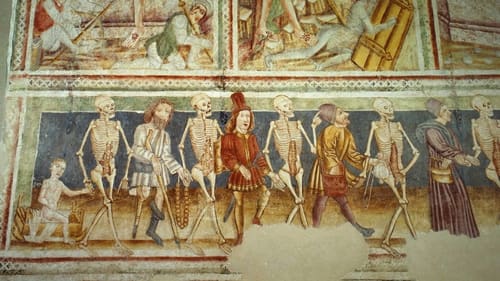
Фильм-разговор с известным французским философом и историком культуры Жан-Луи Шефером, рассуждающим об аллегорическом сюжете в европейской живописи, посвященном «пляске смерти». Поэтическое кино о том, как можно смотреть на мир и на искусство; как можно интерпретировать жизнь. Шефер рассуждает о музыке Баха как утешении; таким утешением становится этот фильм, где словно как в утопии течет под лучами солнца неспешно, ни куда не срываясь, речь, которая, звучит в фильме как музыка.

Producer
Фильм-разговор с известным французским философом и историком культуры Жан-Луи Шефером, рассуждающим об аллегорическом сюжете в европейской живописи, посвященном «пляске смерти». Поэтическое кино о том, как можно смотреть на мир и на искусство; как можно интерпретировать жизнь. Шефер рассуждает о музыке Баха как утешении; таким утешением становится этот фильм, где словно как в утопии течет под лучами солнца неспешно, ни куда не срываясь, речь, которая, звучит в фильме как музыка.

Director
Фильм-разговор с известным французским философом и историком культуры Жан-Луи Шефером, рассуждающим об аллегорическом сюжете в европейской живописи, посвященном «пляске смерти». Поэтическое кино о том, как можно смотреть на мир и на искусство; как можно интерпретировать жизнь. Шефер рассуждает о музыке Баха как утешении; таким утешением становится этот фильм, где словно как в утопии течет под лучами солнца неспешно, ни куда не срываясь, речь, которая, звучит в фильме как музыка.
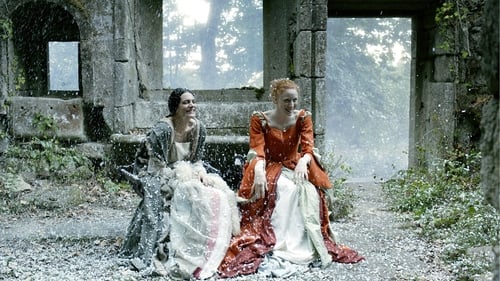
Editor
Его дом - война. Ее дом - Португалия. И все же молодая жена лорда фон Кеттена намерена сделать жилище своего мужа, негостеприимный замок на скале в северной Италии, своим домом. В течение одиннадцати долгих лет, пока он отсутствует, она строит здесь свою жизнь.

Producer
Его дом - война. Ее дом - Португалия. И все же молодая жена лорда фон Кеттена намерена сделать жилище своего мужа, негостеприимный замок на скале в северной Италии, своим домом. В течение одиннадцати долгих лет, пока он отсутствует, она строит здесь свою жизнь.

Screenplay
Его дом - война. Ее дом - Португалия. И все же молодая жена лорда фон Кеттена намерена сделать жилище своего мужа, негостеприимный замок на скале в северной Италии, своим домом. В течение одиннадцати долгих лет, пока он отсутствует, она строит здесь свою жизнь.

Director
Его дом - война. Ее дом - Португалия. И все же молодая жена лорда фон Кеттена намерена сделать жилище своего мужа, негостеприимный замок на скале в северной Италии, своим домом. В течение одиннадцати долгих лет, пока он отсутствует, она строит здесь свою жизнь.

Writer
Jorge de Sena was forced to leave his country. First he moved to Brazil, and later to the USA. He never returned to Portugal. During his 20-year-long exile, he kept an epistolary correspondence with Sophia de Mello Breyner Andresen. These letters are a testimony of the profound friendship between the two poets, letters of longing and of desire to “fill years of distance with hours of conversation”. Through excerpts and verses, a dialog is established, revealing their divergent opinions but mostly their strong bond, and their efforts to preserve it until their last breaths.

Editor
Jorge de Sena was forced to leave his country. First he moved to Brazil, and later to the USA. He never returned to Portugal. During his 20-year-long exile, he kept an epistolary correspondence with Sophia de Mello Breyner Andresen. These letters are a testimony of the profound friendship between the two poets, letters of longing and of desire to “fill years of distance with hours of conversation”. Through excerpts and verses, a dialog is established, revealing their divergent opinions but mostly their strong bond, and their efforts to preserve it until their last breaths.

Director
Jorge de Sena was forced to leave his country. First he moved to Brazil, and later to the USA. He never returned to Portugal. During his 20-year-long exile, he kept an epistolary correspondence with Sophia de Mello Breyner Andresen. These letters are a testimony of the profound friendship between the two poets, letters of longing and of desire to “fill years of distance with hours of conversation”. Through excerpts and verses, a dialog is established, revealing their divergent opinions but mostly their strong bond, and their efforts to preserve it until their last breaths.

Self
Joaquim Pinto has been living with HIV and VHC for almost twenty years. “What now? Remind Me” is the notebook of a year of clinical studies with toxic, mind altering drugs as yet unapproved. An open and eclectic reflection on time and memory, on epidemics and globalization, on survival beyond all expectations, on dissent and absolute love. In a to-and-fro between present and past memories, the film is also a tribute to friends departed and those who remain.
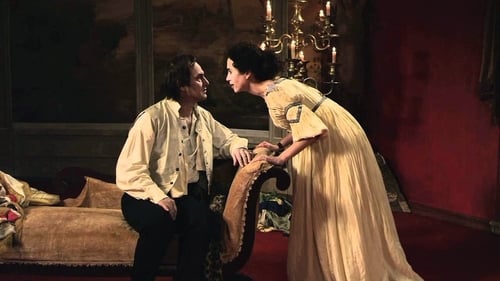
Screenplay
Roberto is one of those men to whom simulation has become the greatest art. He is an unmoved, inscrutable, mysterious man. But the truth is that Robert feels an intimate, deep tedium. The boredom of those who have already exhausted all the pleasures of life. The only thing still surprising him is the fact that nothing surprises him anymore. One evening he has an overwhelming encounter with a woman. For his own bewilderment, he discovers the sublime horrors in which the woman has sank.

Director
Roberto is one of those men to whom simulation has become the greatest art. He is an unmoved, inscrutable, mysterious man. But the truth is that Robert feels an intimate, deep tedium. The boredom of those who have already exhausted all the pleasures of life. The only thing still surprising him is the fact that nothing surprises him anymore. One evening he has an overwhelming encounter with a woman. For his own bewilderment, he discovers the sublime horrors in which the woman has sank.

Herself
A documentary about the world of portuguese cinema, with interviews with some critics and directors.

Producer
A story about art and educated men, and how their art and culture reveal themselves useless in the face of the harsh realities of the 20th century life.

Writer
A story about art and educated men, and how their art and culture reveal themselves useless in the face of the harsh realities of the 20th century life.

Director
A story about art and educated men, and how their art and culture reveal themselves useless in the face of the harsh realities of the 20th century life.

Editor
Joáo Bénard da Costa, director of the Portuguese National Film Archives [deceased in 2009], interviews the dean of contemporaneous film directors [96-years-old then]. Two humanists of different philosophical backgrounds, both with their long, entire lives dedicated to culture in general (music, painting, literature) and to film in particular, discuss freely, sometimes haltingly, the director's power as a creator or a magician, the philosophy beyond particular scenes in classic movies, film technique, the importance of color, sound and music to films, art versus entertainment, and much more. Their talk takes place in a museum room, seating in front of "The Annunciation" (a 1510 oil painting by João Vaz, a Portuguese artist), which eventually leads to a discussion of 'Leonardo da Vinci', and the relationship between a trend-setter master and his disciples.

Idea
Joáo Bénard da Costa, director of the Portuguese National Film Archives [deceased in 2009], interviews the dean of contemporaneous film directors [96-years-old then]. Two humanists of different philosophical backgrounds, both with their long, entire lives dedicated to culture in general (music, painting, literature) and to film in particular, discuss freely, sometimes haltingly, the director's power as a creator or a magician, the philosophy beyond particular scenes in classic movies, film technique, the importance of color, sound and music to films, art versus entertainment, and much more. Their talk takes place in a museum room, seating in front of "The Annunciation" (a 1510 oil painting by João Vaz, a Portuguese artist), which eventually leads to a discussion of 'Leonardo da Vinci', and the relationship between a trend-setter master and his disciples.

Director
Joáo Bénard da Costa, director of the Portuguese National Film Archives [deceased in 2009], interviews the dean of contemporaneous film directors [96-years-old then]. Two humanists of different philosophical backgrounds, both with their long, entire lives dedicated to culture in general (music, painting, literature) and to film in particular, discuss freely, sometimes haltingly, the director's power as a creator or a magician, the philosophy beyond particular scenes in classic movies, film technique, the importance of color, sound and music to films, art versus entertainment, and much more. Their talk takes place in a museum room, seating in front of "The Annunciation" (a 1510 oil painting by João Vaz, a Portuguese artist), which eventually leads to a discussion of 'Leonardo da Vinci', and the relationship between a trend-setter master and his disciples.

Herself
A 58 minute documentary about the life of João Bénard da Costa.

Editor
Arriving in a hotel in the city of Faro, a couple learns there are no available tables left. When another couple agrees to share a table, they spark a conversation on the city’s history, unfolding the tales of King Afonso III, who betrays his wife, and of a Moorish woman, who betrays her father.

Director
Arriving in a hotel in the city of Faro, a couple learns there are no available tables left. When another couple agrees to share a table, they spark a conversation on the city’s history, unfolding the tales of King Afonso III, who betrays his wife, and of a Moorish woman, who betrays her father.

Producer
The experimental nature of this film explores the memories of a young love.

Writer
The experimental nature of this film explores the memories of a young love.

Director
The experimental nature of this film explores the memories of a young love.
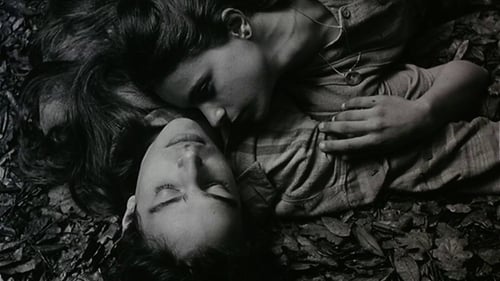
Screenplay
An impossible love. Two young people who love each other. Vera and João can’t find in this life the space, time, or identity to resolve their love story.

Director
An impossible love. Two young people who love each other. Vera and João can’t find in this life the space, time, or identity to resolve their love story.
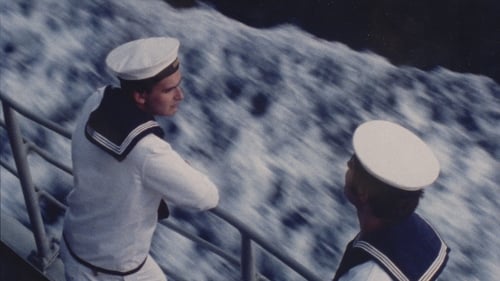
Writer
Freely based on Gide ('Paludes') and Hawthorne ('Wakefield'), this is a film about a writer who never wrote anything and who blows at nightfall the breath of frost. The poem by Carlos Queiroz to which the above sentences belong is not cited in 'O som da Terra a Tremer', but the atmosphere is that, between written letters never received. Fiction within fiction, stories within stories, like those Chinese boxes in which there is always one inside another. Or the two margins of the same river, always being lateral.

Director
Freely based on Gide ('Paludes') and Hawthorne ('Wakefield'), this is a film about a writer who never wrote anything and who blows at nightfall the breath of frost. The poem by Carlos Queiroz to which the above sentences belong is not cited in 'O som da Terra a Tremer', but the atmosphere is that, between written letters never received. Fiction within fiction, stories within stories, like those Chinese boxes in which there is always one inside another. Or the two margins of the same river, always being lateral.

Set Decoration
A mentally unstable woman and her son move to a sprawling mansion in Portugal to grow roses.

Costume Design
A sickly young girl is given away by her father to a childless couple. Twenty years later, she marries her adopted father.
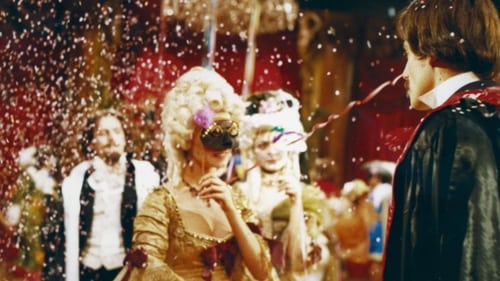
Costume Design
The life of a young man, son of an English officer who lets himself become a prisoner of love resulting in fatalism and disgrace.

Gothic film in a monastery, where sensual monks murder the children they receive, with images of fantastic, painted from the author own painting and also from the Hammer films and the Saxon plastic tradition of romanticism.

Assistant Director
Gothic film in a monastery, where sensual monks murder the children they receive, with images of fantastic, painted from the author own painting and also from the Hammer films and the Saxon plastic tradition of romanticism.

An “artist film” that crosses Karl Martin, Martin Heidegger and the Communist Party’s Manifesto.

Assistant Director
An “artist film” that crosses Karl Martin, Martin Heidegger and the Communist Party’s Manifesto.

Assistant Director
This is one of Noronha da Costa's films in which the "fictional" component is most visible. D. Jaime or the Portuguese Night, like the rest of Noronha da Costa's films, is part of the gothic films (Terence Fisher's work was one of his great influences), and in it he shows the different variations around the "specular bodies", which evolve into luminous magic and into sensual and sensory incandescence. At the same time, we witness a series of ironic and erotic, or historical, views of wicked virgins and laughable sadists, all resurrected from German and British romanticism, while the scenery is no longer Portuguese.











